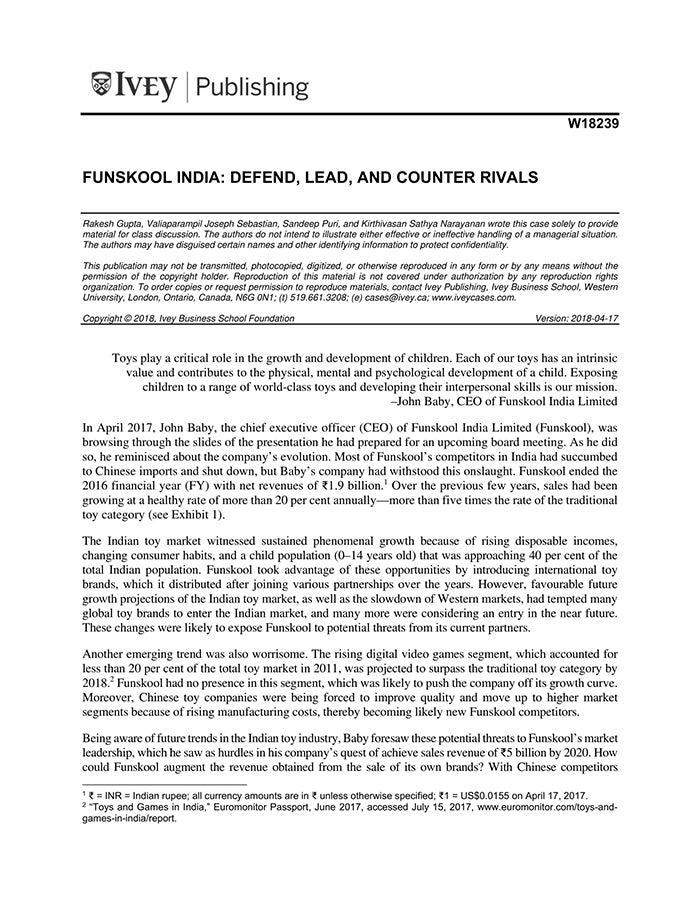Funskool India: Defend, Lead, and Counter Rivals
受取状況を読み込めませんでした
In April 2017, the chief executive officer of Funskool India Limited (Funskool), was formulating a growth strategy to increase the company's annual revenues from 1.9 billion in 2016 to 5 billion by 2020. The Indian toy manufacturer had primarily catered to the local market while also exporting toys to developed markets. In 2006, the company expanded its line of products, set up an exclusive design department to develop new products, redesigned its advertising and promotional activities, and expanded into retail outlets. However, Chinese importers were upgrading and moving up the product segment ladder, where Funskool had a strong presence, and video games, which Funskool did not produce, were seeing exponential growth. How could Funskool augment the revenue obtained from the sale of its own brands? With Chinese competitors targeting consumers higher up the segment, should Funskool target customers in the lower economic levels? Should it enter the digital space to prevent a growth stall and catapult itself to the next stage in the growth cycle? The company needed to make some decisions and take steps to face these emerging challenges. Rakesh Gupta is affiliated with Institute of Management Technology, Ghaziabad. Sandeep Puri is affiliated with Asian Institute of Management.
【書誌情報】
ページ数:12ページ
サイズ:A4
商品番号:HBSP-W18239
発行日:2018/4/17
登録日:2018/6/27


